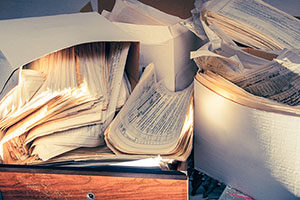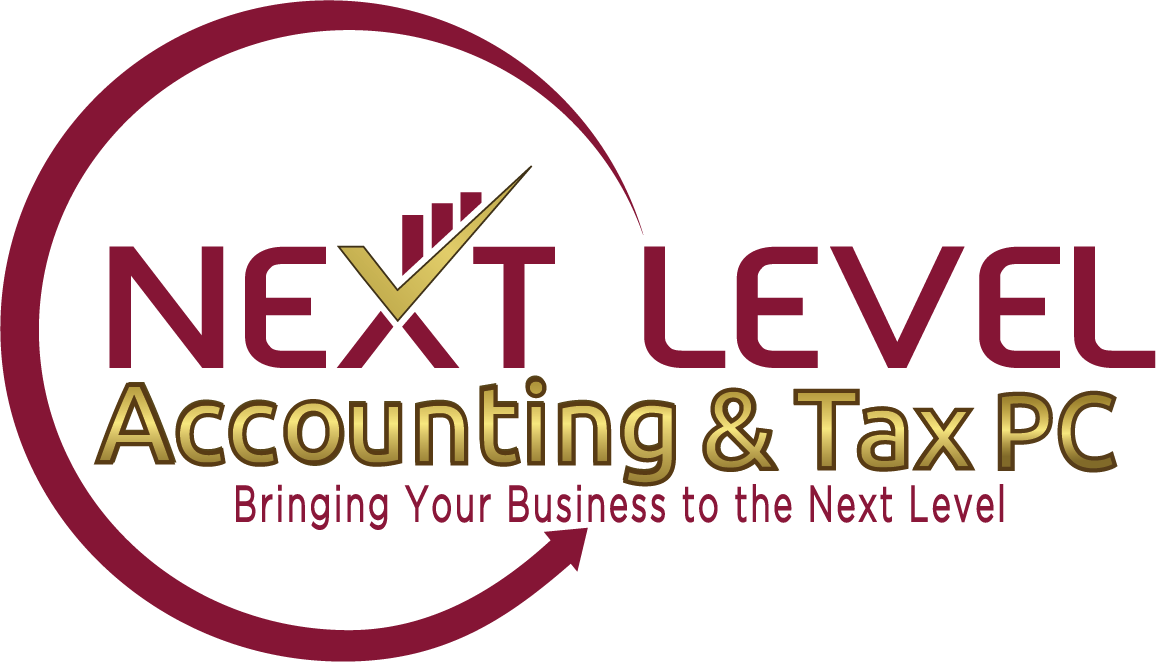Why We Love Record Keeping (And You Should Too!)
 Do You Know Which Records to Keep?
Do You Know Which Records to Keep?
Keeping accurate records for your tax purposes is a must. Every year, taxpayers go through the irritating task of gathering the information needed to file their federal income tax return. Once the information has been gathered together, what happens to it? Do you file it amidst your other years’ tax information? Do you keep each year separate? How long do you store your records before disposing of them?
When collecting records for your tax return, the “Must-Haves” include:
- W2 forms from all employers.
- If you received a refund of state or local income taxes you need to file a form 1090G.
- All 1099 Forms received.
- Receipts for itemized deductions.
- Records and receipts for any other income or expense that might affect your federal income tax liability.
What to Keep to Record Your Expenses?
If you are able to deduct travel, entertainment, transportation, or charitable gifts, proof of your expense is required. Examples of acceptable proof include receipts, canceled checks, bills, or paid invoices that support all claims.
Generally, keeping a complete written record of all expenses to be claimed on an income tax return is helpful, using the following four categories:
- Amount: the actual cost of the expense
- Time: a written record of the dates you traveled on business or when clients were entertained. If local travel is involved, the dates of car rentals, train tickets, or taxi fare.
- Destination: the name of the city or town traveled to, the address of the restaurant, or the place of entertainment. In the case of a gift, keep a written description of the gift.
- Business Purpose: a written log of the purpose of the business expense, as well as the professional relationships of all involved.
When donating to charity, what records do I need?
As evidence of your charitable donation, the following options are available:
- Bank Records: includes canceled checks, credit card statements, or a bank or credit union statement showing the name of the charity, date, and amount of donation. Your credit card statements need to show the transaction posting date as well as the name of the charity.
- Written Communication: information received from the charity must show the name of the organization, date, and contribution amount.
- Payroll Deductions: if you wish to deduct a donation made via regular payroll deductions, you will need to retain your pay stub, IRS Form W-2, pledge card, or other documents provided by their employer that shows the charity’s name, date, and the amount of the donation.
The IRS requirements for charitable donations no longer allow written logs, diaries, or notes made by the taxpayer at the time of donation.
Why should I keep accurate tax records?
Your tax records can help identify the exact source of all income. Your tax records can help you keep track of your deductible expenses. Your tax records are also necessary for filing a tax return. In the case of an audit, your accurate records can help you prove your case.
The kinds of records to maintain include:
- Proof of Income: include bank and brokerage statements, all Forms W-2, all Forms 1099, and Form K-1 for individuals involved with a partnership and/or a Subchapter S corporation.
- Investment Gains and Losses: statements received from mutual funds and brokerage houses, all Forms 1099, and Form 2439 (Notice to Shareholder of Undistributed Long-Term Capital Gains).
- Deductible Expenses: all written documentation received from charities, canceled checks, receipts, and invoices.
- Home / Housing Costs: keep receipts that can be used to document improvements made to your home, insurance records, and any closing statements you have regarding the sale or refinancing of your house.
- Cash, Credit, or Debit Cards: amounts paid, the payee, as well as the dates of all payments.
- Checks / Electronic Funds: in addition to the above-mentioned information for cash, you need to record the check numbers and the dates these transactions were posted to bank accounts.
You should also keep records for the following expenses: alimony paid, casualty and theft losses, child care expenses, charitable contributions, education expenses, unreimbursed business expenses, gambling winnings or losses, retirement account contributions, mortgage interest paid, moving expenses, pensions/annuity payments, taxes paid, and tips received.
How long should I keep my tax records?
The IRS believes that you need to keep your tax records for as long as necessary to be able to prove a claim on your tax return. As a general rule, you are advised to keep a copy of your records for a minimum of seven (7) years.
How can I simplify my record keeping?
Using your smartphone with record keeping apps and a scanner for receipts and invoices will make keeping and storing your records easier. A scanned form takes up less space than storing boxes of paper records. Also, all of the records are easily accessible from one location and can be uploaded or sent to your qualified tax preparer through the use of email or portal access. This can be especially helpful to paperless companies and you will be in no danger of losing the original copies.
If you have any questions, regarding your taxes, or your documents, Next Level Accounting & Tax is here to help. We LOVE keeping accurate records, and so should you!
